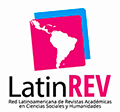The use of literary sociolect in three translations of Great Expectations
DOI:
https://doi.org/10.11606/issn.2317-9511.v35i0p117-137Keywords:
Translation, Literary Sociolect, English LiteratureAbstract
Drawing on a brief discussion of the concepts of literary sociolet and eye dialect (based on Lane-Mercier, Brett and Pym), this paper addresses the use of literary sociolet in Charles Dickens' novel Great Expectations (1861) and compares the solutions found by three different translators of the novel, namely: Armando de Morais, Charles Bernard-Derosne and Paulo Henriques Britto. As a conclusion, we can observe that only the translator Paulo Henriques Britto took into account the issue of the literary sociolet.
Downloads
References
BERMAN, A. A Tradução e a Letra ou o Albergue do Longínquo. Rio de Janeiro: 7Letras/PGET, 2007.
BRETT, D. F. “Eye dialect: translating the untranslatable”. Annali della Facoltà di Lingue e Letterature Straniere di Sassari, v. 6, 2009, p. 49-62.
BRITTO, P. H. A tradução literária. Rio de Janeiro: Civilização Brasileira, 2012.
COLVIN, S. “Aristophanes: Dialect and Textual Criticism”. Mnemosyne. Leiden, v. 48, n. 4, 1995, p. 34-47.
DICKENS, C. Grandes Esperanças. Tradução de Armando de Morais. São Paulo: Círculo do Livro, 198?.
DICKENS, C. Grandes Esperanças. Tradução de Paulo Henriques Britto. São Paulo: Cia. Das Letras, 2012.
DICKENS, C. Great Expectations. New York: P. F. Collier and Son, 1929.
DICKENS, C. Les Grandes Espérances. Tradução de Bernard Derosne. Paris: Hachette, 1889. Disponível em: <https://fr.wikisource.org/wiki/Les_Grandes_Espérances>. Acesso em: 19 out. 2017.
DICKENS, C. Oliver Twist. Tradução de Antônio Ruas. São Paulo: Círculo do Livro, 197?.
LANE-MERCIER, G. Translating the untranslatable: The Translator's Aesthetic, Ideological and Political Responsibility. Target, Amsterdam, v. 9, n. 1, 1997, p. 43–68.
MILTON, J. “The Translations of O Clube do Livro”. TradTerm, São Paulo, n. 3, 1996, p. 47-65.
PUKKARI, M. “The Purpose of Dialect in Charles Dickens’s Novel Great Expectations”. Bachelor’s seminar and thesis (682285A), English philology, Faculty of Humanities, University of Oulu, 2015. Disponível em: <http://jultika.oulu.fi/files/nbnfioulu-201602031111.pdf.> Acesso em: 19 out. 2017.
PYM, A. “Translating linguistic variation”. In VEGA, M. A.; MARTÍN-GAITERO, R. (ed.): Traducción, metrópoli y diáspora. Madrid: Universidad Complutense de Madrid, 2000. p. 69-75.
RAMOS, G. Vidas Secas. Rio de Janeiro: Record, 2011.
TÁPIA, M. Ao que se dá o tradutor de poesia?, Eutomia, Recife, v. 10, n. 1, Dez. 2012, p. 49-62.
Downloads
Published
Issue
Section
License
Copyright (c) 2020 Mateus Roman Pamboukian

This work is licensed under a Creative Commons Attribution-NonCommercial-ShareAlike 4.0 International License.
Autores que publicam nesta revista concordam com os seguintes termos:
- Autores mantém os direitos autorais e concedem à revista o direito de primeira publicação, com o trabalho simultaneamente licenciado sob a Licença Creative Commons Attribution BY-NC-SA que permite o compartilhamento do trabalho com reconhecimento da autoria e publicação inicial nesta revista.
- Autores têm autorização para assumir contratos adicionais separadamente, para distribuição não-exclusiva da versão do trabalho publicada nesta revista (ex.: publicar em repositório institucional ou como capítulo de livro), com reconhecimento de autoria e publicação inicial nesta revista.
- Autores têm permissão e são estimulados a publicar e distribuir seu trabalho online (ex.: em repositórios institucionais ou na sua página pessoal) a qualquer ponto antes ou durante o processo editorial, já que isso pode gerar alterações produtivas, bem como aumentar o impacto e a citação do trabalho publicado (Veja O Efeito do Acesso Livre).







